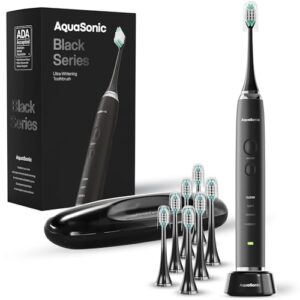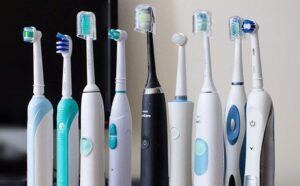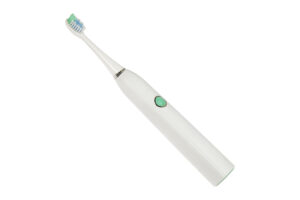Yes, electric toothbrushes are worth it. They clean teeth better and make brushing easier.
Many people wonder if electric toothbrushes are really worth the investment. With various options available, it can be hard to decide if switching from a manual toothbrush is necessary. Electric toothbrushes offer advanced features like timers and pressure sensors, which can help improve your oral hygiene routine.
They are designed to remove more plaque and reduce the risk of gum disease compared to manual brushing. Understanding the benefits and drawbacks of electric toothbrushes can help you make an informed decision. In this blog post, we’ll explore the advantages and potential downsides, so you can determine if an electric toothbrush is the right choice for you.

Credit: www.nytimes.com
Benefits Of Electric Toothbrushes
Are electric toothbrushes worth the investment? Many people wonder if they should switch from a manual toothbrush to an electric one. Let’s explore the benefits of electric toothbrushes to help you make an informed decision.
Improved Oral Health
Electric toothbrushes can significantly improve your oral health. They are designed to remove more plaque than manual toothbrushes. This helps prevent cavities and gum disease.
Many electric toothbrushes come with built-in timers. These ensure you brush for the dentist-recommended two minutes. Some models even alert you if you’re brushing too hard, which can protect your gums from damage.
Studies have shown that electric toothbrushes can reduce gingivitis more effectively than manual brushes. This leads to healthier gums and a brighter smile. Have you noticed your gums bleed when you brush? An electric toothbrush might help reduce that.
Ease Of Use
Electric toothbrushes are incredibly user-friendly. They do most of the work for you. All you need to do is guide the brush across your teeth.
This can be particularly helpful for people with limited mobility. Conditions like arthritis can make it hard to brush thoroughly with a manual toothbrush. The electric toothbrush can make this task easier and more effective.
Children also benefit from the ease of use. Many kids find electric toothbrushes more fun to use. This can encourage them to brush regularly and develop good oral hygiene habits.
Switching to an electric toothbrush might feel like a big step. But the benefits to your oral health and ease of use can make it worth it. Have you tried an electric toothbrush yet? What was your experience?
Types Of Electric Toothbrushes
Electric toothbrushes come in various types, each offering unique benefits. Understanding the different types can help you choose the best one for your needs. The two main types are those with rotating brush heads and those with sonic technology.
Rotating Brush Heads
Electric toothbrushes with rotating brush heads use circular motions to clean teeth. The brush head spins rapidly, helping remove plaque and debris more effectively. This type is often recommended for people with gum issues. The rotating action can provide a deeper clean around the gum line.
Sonic Technology
Sonic toothbrushes use high-frequency vibrations to clean teeth. These vibrations create tiny bubbles in the toothpaste and water. The bubbles help to dislodge plaque and bacteria from the teeth and gums. This type of toothbrush can be gentler on the teeth and gums. It’s ideal for people with sensitive teeth.
Cost Comparison
When considering whether to switch from a manual to an electric toothbrush, one of the most important factors is the cost. How does the price of an electric toothbrush compare to a manual one? Let’s break it down into two parts: the initial investment and long-term savings.
Initial Investment
The price tag on an electric toothbrush can be a bit of a shock. They often cost anywhere from $20 to $200, depending on the brand and features. While this might seem steep compared to a $2 manual toothbrush, it’s worth considering what you’re getting for your money.
Electric toothbrushes often come with extra features like timers, pressure sensors, and multiple brushing modes. These can help improve your brushing technique and overall oral health. Think of it as an investment in your smile!
There are also budget-friendly options available. Some brands offer basic models at a lower price, giving you the benefits of electric brushing without breaking the bank. Have you ever wondered if a little extra investment in your dental care could save you pain and money in the future?
Long-term Savings
Once you’ve made the initial purchase, the ongoing costs are relatively low. Replacement brush heads typically cost between $5 and $10 each and last about three months. This adds up to roughly $20 to $40 per year.
Compare this to the cost of dental treatments for issues like cavities, gum disease, or other oral health problems. Good oral hygiene with an electric toothbrush might prevent these problems, potentially saving you hundreds or even thousands on dental bills.
Many users report fewer dental issues after switching to electric toothbrushes. This means fewer trips to the dentist, less discomfort, and more money in your pocket. Isn’t it worth a try to see if an electric toothbrush could be your ticket to better dental health and savings?
Effectiveness
Electric toothbrushes are often praised for their effectiveness. But are they really worth the investment? Let’s dive into the specifics of their performance in plaque removal and gum health.
Plaque Removal
Electric toothbrushes excel in removing plaque. Their rotating or vibrating bristles reach places manual brushes can’t. This helps in cleaning between teeth and along the gumline. Studies show electric toothbrushes reduce more plaque than manual ones. This leads to better oral hygiene and fewer cavities.
Gum Health
Healthy gums are crucial for overall oral health. Electric toothbrushes often have modes specifically for gum care. These modes are gentler and help massage the gums. Improved gum health means less bleeding and inflammation. Consistent use can lead to stronger, healthier gums.
User Experience
Electric toothbrushes have gained popularity. Many people wonder if they are worth it. One important aspect to consider is the user experience. This focuses on how easy and pleasant the toothbrush is to use.
Comfort And Convenience
Electric toothbrushes are designed to be easy to hold. The handles usually have a comfortable grip. This makes brushing easier, especially for people with limited hand movement. The brush heads are also smaller. They fit well in the mouth and can reach all areas easily.
Many electric toothbrushes have multiple modes. Users can choose a mode that feels best. Options like sensitive, clean, and massage can cater to different needs. This adds to the overall comfort and convenience of the brushing experience.
Built-in Timers
Built-in timers are a helpful feature. They ensure that users brush for the recommended two minutes. The timer often buzzes every 30 seconds. This reminds users to switch to a different part of their mouth. This can improve brushing habits and ensure thorough cleaning.
Some advanced models even have quadrant timers. These timers guide users through brushing each section of their mouth. This makes sure no area is missed. These timers add great value to the user experience, making brushing both effective and efficient.
Environmental Impact
Electric toothbrushes are becoming increasingly popular, but their environmental impact is a concern that many users overlook. While they offer superior cleaning, it’s important to consider how their use affects the planet. Let’s break down the environmental impact of electric toothbrushes into two key areas: battery disposal and sustainability.
Battery Disposal
The batteries in electric toothbrushes need to be replaced periodically. This raises questions about disposal. Are you aware of the proper way to discard these batteries?
Improper disposal can lead to harmful chemicals leaking into the environment. Many users simply toss used batteries into the trash, which ends up in landfills. This is not only harmful but also illegal in many places.
To mitigate this, consider recycling programs. Many local stores and recycling centers accept used batteries. This small step can significantly reduce environmental harm.
Sustainability
Sustainability is another critical factor. Electric toothbrushes are often made with plastic and other non-biodegradable materials. These materials take hundreds of years to decompose.
One way to make a difference is by choosing toothbrushes made from sustainable materials. Some brands offer recyclable or biodegradable options. This makes a huge difference in reducing long-term waste.
Additionally, reducing the frequency of replacing toothbrush heads can help. High-quality heads last longer, leading to less waste overall. This not only benefits the planet but also saves you money in the long run.
So, is the convenience of an electric toothbrush worth its environmental impact? Consider these points carefully before making your decision. Small changes in your habits can lead to big environmental benefits.
Alternatives To Electric Toothbrushes
If you’re considering alternatives to electric toothbrushes, you’re not alone. Many people wonder if there are other effective tools for maintaining oral hygiene. Let’s dive into some practical options that might suit your needs and preferences.
Manual Toothbrushes
Manual toothbrushes are a popular and affordable choice. They come in various bristle types and head sizes, allowing you to find one that fits comfortably in your mouth.
One advantage of manual toothbrushes is control. You can adjust the pressure and angle to suit your teeth and gums. This can be particularly beneficial if you have sensitive gums.
Another benefit is their portability. You can easily pack a manual toothbrush for travel without worrying about charging or battery life.
Other Dental Tools
Aside from toothbrushes, there are other dental tools to consider. Dental floss is essential for removing plaque and food particles between your teeth where brushes can’t reach.
Water flossers are also gaining popularity. They use a stream of water to clean between teeth and around gumlines. Many find them easier and more effective than traditional floss.
Lastly, consider using interdental brushes. These tiny brushes can clean between teeth and are especially useful for people with braces or dental work.
Have you tried any of these alternatives? What was your experience like? Share your thoughts in the comments below!
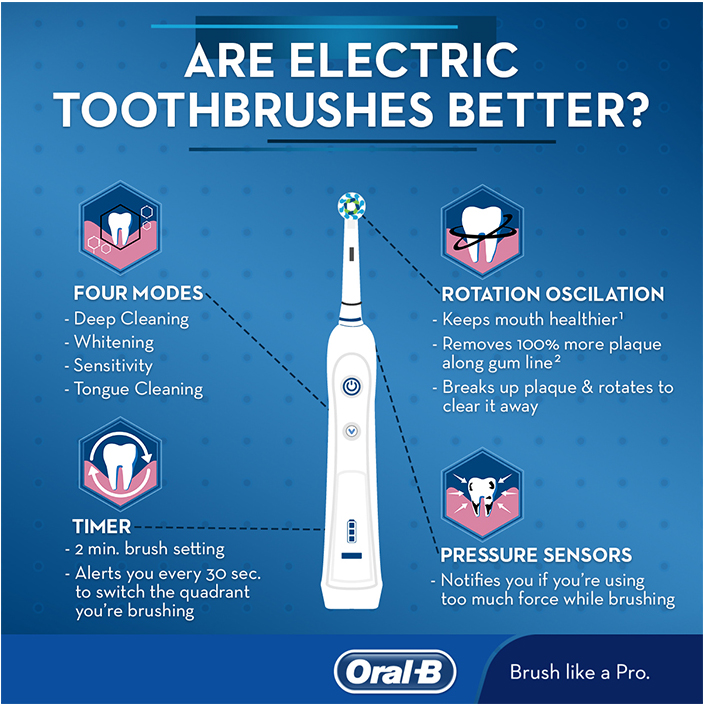
Credit: anviti.com
Expert Opinions
Are electric toothbrushes worth the investment? Many people wonder about this. To provide a clearer picture, we looked at expert opinions on this matter. We consulted dentists and reviewed scientific studies. This section dives into these expert insights.
Dentist Recommendations
Many dentists recommend electric toothbrushes. They believe these tools improve oral hygiene. Electric toothbrushes often come with timers. This feature helps ensure you brush long enough. Dentists also note that electric toothbrushes can be more effective at removing plaque. The rotating or vibrating heads reach areas manual brushing might miss.
Electric toothbrushes are especially useful for people with limited dexterity. Elderly individuals or those with arthritis may find them easier to use. Dentists often suggest them for these groups. In summary, many dental professionals see benefits in electric toothbrushes.
Scientific Studies
Scientific studies support dentists’ recommendations. Research shows electric toothbrushes can reduce plaque and gingivitis more effectively. Studies have compared electric and manual toothbrushes. The results favor electric models in most cases. They often provide better cleaning power.
Another study found electric toothbrushes improve oral health in the long term. Users had fewer cavities and less gum disease. These findings suggest electric toothbrushes are a valuable tool. Scientific evidence backs up the claims made by dentists.
Electric toothbrushes also offer advanced features. Some models include pressure sensors. These sensors help prevent brushing too hard. Using them can lead to gentler and more effective cleaning. Such features add value and support the case for electric toothbrushes.
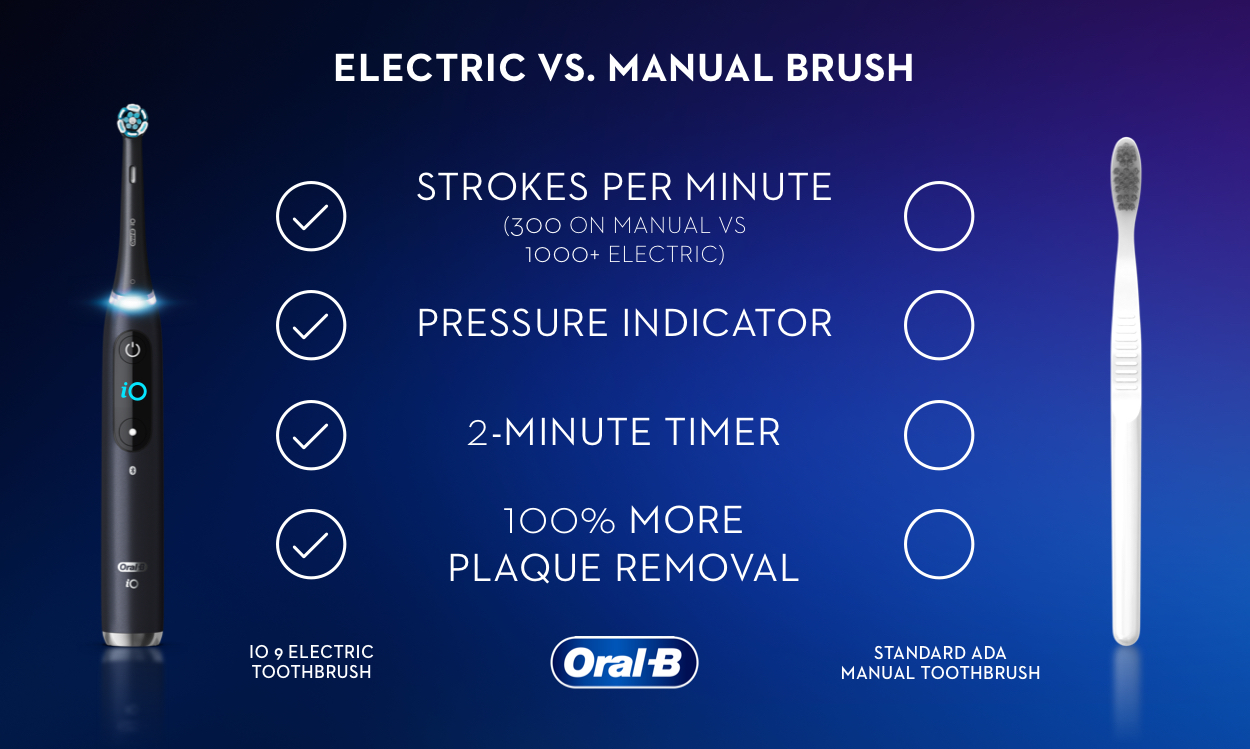
Credit: oralb.com
Frequently Asked Questions
Do Dentists Actually Recommend Electric Toothbrushes?
Yes, many dentists recommend electric toothbrushes. They are more effective at removing plaque and reducing gum disease.
Does An Electric Toothbrush Really Make A Difference?
Yes, an electric toothbrush can make a significant difference. It removes more plaque and improves gum health better than manual brushing.
Is It Worth Spending Money On Electric Toothbrush?
Yes, spending on an electric toothbrush is worth it. They improve oral hygiene, remove more plaque, and are easy to use.
What Are The Disadvantages Of Electric Toothbrushes?
Electric toothbrushes can be expensive. They require charging or battery replacements. Some users find them bulky. They may cause gum irritation if used improperly.
Conclusion
Electric toothbrushes offer many benefits for oral health. They clean teeth effectively. They are easy to use and reduce plaque. Some models have timers for better brushing habits. While they cost more than manual brushes, their advantages are clear. Consider your needs and budget.
A healthy smile is worth the investment. Overall, electric toothbrushes can improve your dental hygiene.


